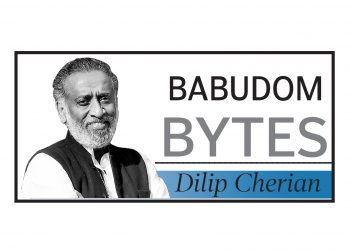The Uttarakhand government has moved swiftly to revoke the recent ban announced by Uttarakhand Ayurveda and Unani Licensing Authority on the production of five products of yoga guru Baba Ramdev. A fresh order issued by Uttarakhand drug regulator Dr GCN Jangapangi now states that the previous order has been ‘amended’ and the production of the five products can continue as earlier.
Typically, the hasty retreat is blamed on a babu snafu. Apparently, according to Jangapangi, the ban order was issued in haste and the company manufacturing the products should have been given time to explain its stand. Not surprisingly, again, Ramdev’s company reacted sharply stating that the ‘error’ is due to an “indiscreet error of an officer”. It claims that the ban order was instigated by a “drug mafia” and threatened legal action against those responsible for attempting to “malign its image”.
Interestingly, some have forgotten that besides the state authority, the Central Consumer Protection Authority (CCPA), had also taken a firm view on advertisements of these products. But if the manufacturer happens to be close to the current political dispensation in the state and, more importantly, at the Centre, it is easy to lay it all on a mistake by a bungling babu.
India’s G-20 Agenda
Next month, India will assume the presidency of the G-20 from Indonesia. Prime Minister Narendra Modi was in Bali, accompanied by Minister of External Affairs S Jaishankar and National Security Advisor (NSA) Ajit Doval. He held extensive talks with G-20 leaders on critical issues including the state of the global economy, energy, environment, agriculture, health and digital transmission. Clearly, these are the key areas where India is aiming to reset the agenda and prepare the world for the future.
The G-20 presidency is being seen as a unique opportunity for India to drive a global narrative. During India’s presidency, almost 200 meetings are expected to be held at different locations in the country. As is the tradition, India will invite some guest countries and international organisations to its meetings and the summit. It’s going to be a busy schedule for the MEA and the diplomatic corps.
Much of the groundwork for India’s takeover of the presidency has already been done by the Ministry of External Affairs (MEA), led by former Foreign Affairs Secretary and Chief Coordinator for India’s G -20 presidency Harsh Vardhan Shringla, who was joined by Foreign Secretary Vinay Kwatra and India’s G 20 Sherpa Amitabh Kant. While the priorities of G-20 are in the process of being firmed up, MEA watchers say that the focus of the ongoing conversations will revolve around inclusive growth, energy security, disaster risk reduction, developmental cooperations, agriculture, climate financing, digital public infrastructure and multilateral reforms. There’s a lot to keep the MEA diplomats on their toes throughout the year-long Indian G-20 presidency.
No takers for Waqf Board CEO post
The Telangana Waqf Board has been searching in vain for a CEO. Sources say that the board may well be the most shunned due to its reputation for misgovernance and the state government’s apparent disinterest in its functioning. Recent efforts of the Wakf Board, DKB has learnt, to persuade Muslim officers of deputy secretary rank to head it, have drawn a blank.
Telangana has six Muslim officers of the rank of deputy secretary and above, including Abdul Hameed, Additional Collector, Jangaon; MA Mannan, Joint Secretary, Law Department; and B Shafiullah, Secretary, Telangana Minorities Residential Educational Institutions Society (TMREIS).
These officials, sources have informed DKB, have shown little interest in the Wakf Board probably because of the Board’s reputation for intense politicking. In the past, CEOs have requested the government to repatriate them to their parent departments. Moreover, CEOs have often had inquiries initiated against them.
The Wakf Act requires that the CEO should be a Muslim and not below the rank of a deputy secretary. But in practice, officers of the rank of deputy collector are posted, and in many instances, they are not even full-fledged CEOs. Many observers feel that a lesser rank official is often a mute spectator and even sometimes hand-in-glove with “undesirable acts” of the board members. Only the presence of an IAS or IPS officer would be a deterrent, it is widely believed. And here things stand unless Chief Minister K Chandrashekar Rao decides to do something about this unhappy situation.
Share a babu experience! Follow dilipthecherian@twitter.com. Let’s multiply the effect
